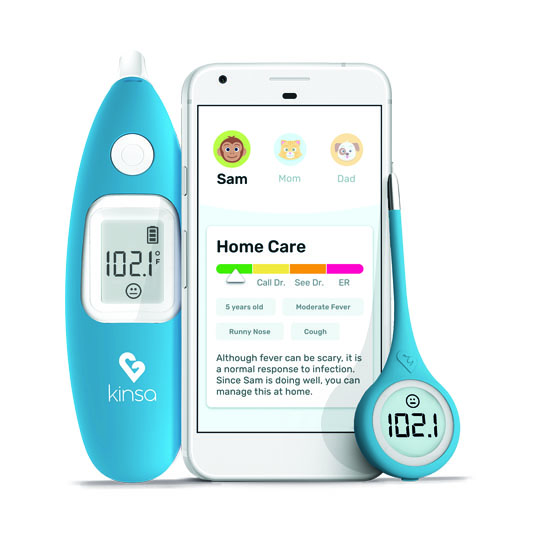

The pandemic has not only accelerated the development of telehealth tools, but it has demonstrated why they are important for detecting and responding to outbreaks as quickly as possible. I wish it hadn’t taken a pandemic for the importance of digital health tools to come to light, but I’m grateful that our product’s ability to detect and respond to outbreaks early gives us an opportunity to save lives. Our goal is to spot little fires of infection and give decision-makers the information they need to put them out before they grow into an inferno.
A Creating awareness of the spread of infectious disease is Kinsa’s mission. We’ve long known that if we want to contain illness, early knowledge is power. We’ve been doing this work on the flu for years and have powerful data from the 1.5 million thermometers in use around the country. In March, our data clearly showed that several geographies were experiencing unusually high levels of illness above and beyond what we’d normally expect from cold and flu season. We felt we had a moral imperative to share this information so that leaders and communities could take action to stop the spread and save both lives and livelihoods.
The reality is that we will see coinfections of COVID-19 alongside the seasonal flu, common cold and other illnesses. In the big picture, that unfortunately means things will likely get worse before they get better. But the good news is that digital tools are making it easier for people to get the care and treatment they need at home whenever possible, instead of traveling to busy health centers and exposing others at work, school or in the community. We are more prepared to take actions that keep people at home when they’re contagious and protect our communities.
We’ve created an early warning system for schools that empowers leaders, teachers and parents to understand how illness is occurring on a grade by grade level and make smarter decisions. We’ve known this to be true for a long time, but this year it helps school officials answer key questions like if and when to reopen schools, when should social distancing policies be ramped up, or when should we do more cleaning and disinfecting. Real-time data makes it possible to make the right decisions for schools and communities.
I wish it hadn’t taken a pandemic for the importance of digital health tools to come to light, but I’m grateful that our product’s ability to detect and respond to outbreaks early gives us an opportunity to save lives.Inder Singh CEO of Kinsa

I3, the flagship magazine from the Consumer Technology Association (CTA)®, focuses on innovation in technology, policy and business as well as the entrepreneurs, industry leaders and startups that grow the consumer technology industry. Subscriptions to i3 are available free to qualified participants in the consumer electronics industry.